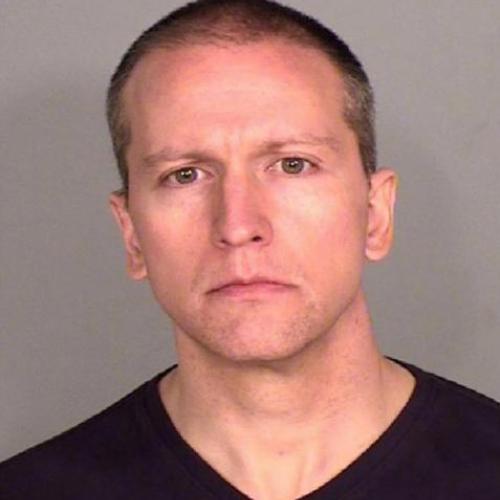The American criminal justice system relies on a delicate balance of power and accountability. Prosecutors, as representatives of the government in criminal cases, play a pivotal role in ensuring justice is served. However, they must also uphold the highest ethical standards and be vigilant in identifying potential misconduct by law enforcement officers. This article delves into the history, current status, and future of how U.S. prosecutors use Potential Impeachment Disclosure material and databases to track officer misconduct.
Historical Perspective
To understand the present landscape, it's essential to trace the historical context of prosecutors' responsibilities regarding law enforcement misconduct. Historically, prosecutors often had close working relationships with police officers, sometimes leading to a reluctance to scrutinize misconduct allegations. This close alliance occasionally hindered impartial investigations and undermined public trust.
However, landmark Supreme Court cases, such as Brady v. Maryland (1963), set a precedent for prosecutors to disclose evidence favorable to the defendant. This included information that could potentially impeach the credibility of law enforcement witnesses. This ruling marked a significant step toward transparency and fairness in the criminal justice system.
In the late 20th and early 21st centuries, high-profile cases of police misconduct brought increased scrutiny to prosecutors' roles. The Rodney King beating in 1991, the Rampart Scandal in the late '90s, and the more recent cases of Michael Brown and Freddie Gray have highlighted the importance of prosecutors addressing officer misconduct.
The Current Landscape
Potential Impeachment Disclosure Material
Prosecutors have a constitutional and ethical duty to disclose potential impeachment material that could affect the credibility of law enforcement witnesses. This includes prior incidents of misconduct, dishonesty, or bias. Failure to do so can result in wrongful convictions and undermine public trust.
The process of identifying and disclosing this material involves reviewing the internal records of law enforcement agencies, personnel files, and prior misconduct complaints. While Brady obligations are well-established, the effectiveness of their enforcement varies across jurisdictions.
Officer Misconduct Databases
In recent years, the creation and utilization of officer misconduct databases have gained prominence. These databases compile information on officers who have been accused or found guilty of misconduct, including excessive force, perjury, or racial bias. They serve as a resource for prosecutors, defense attorneys, and the public.
Some databases, like the National Decertification Index [NDI], track officers who have lost their certification due to misconduct. Others, such as the Invisible Institute's Citizens Police Data Project in Chicago, provide access to civilian complaints against officers. These databases empower prosecutors to identify patterns of misconduct and potentially problematic witnesses.
Challenges and Controversies
Despite the progress made in holding law enforcement accountable, several challenges and controversies persist:
Lack of Uniformity: The use of officer misconduct databases is not standardized, leading to inconsistencies in tracking and sharing information.
Police Union Resistance: Police unions often resist efforts to disclose officer misconduct, citing privacy concerns and due process rights.
Prosecutorial Discretion: Prosecutors have discretion in deciding which cases to pursue, which can lead to unequal enforcement of accountability measures.
The Future Outlook
The future of prosecutors' use of Potential Impeachment Disclosure material and officer misconduct databases holds several potential developments:
Enhanced Data Sharing
Efforts are underway to improve data sharing among law enforcement agencies and across state lines. This could lead to more comprehensive officer misconduct databases, ensuring that problematic officers do not evade scrutiny by relocating.
Legislative Reforms
Legislation is being proposed and passed in various jurisdictions to address issues related to police misconduct and prosecutors' obligations. These reforms aim to increase transparency, accountability, and oversight in law enforcement agencies.
Advancements in Technology
Technological advancements, such as body-worn cameras and dashboard cameras, are becoming standard tools for police officers. These devices can provide crucial evidence in cases of alleged misconduct and serve as valuable resources for prosecutors.
Public Pressure and Awareness
The public's demand for transparency and accountability in law enforcement is a driving force for change. Social justice movements and advocacy groups are pushing for reforms, which could lead to increased scrutiny of officer misconduct by prosecutors.
Prosecutors in the United States hold a critical role in the pursuit of justice. Their duty to disclose Potential Impeachment Disclosure material and track officer misconduct is fundamental to maintaining the integrity of the criminal justice system. While progress has been made, challenges and controversies persist. The future of this aspect of prosecution holds promise, with the potential for enhanced data sharing, legislative reforms, technological advancements, and increased public awareness contributing to a more just and accountable system. Ultimately, the balance between protecting the rights of the accused and holding law enforcement accountable remains central to the mission of U.S. prosecutors in the 21st century.












![Peace Officer Standards & Training [POST] Departments Peace Officer Standards & Training [POST] Departments](/sites/default/files/styles/large/public/2023-07/Brady.png?itok=xsIFvU8R)
![Organizations [Law Enforcement et al.] Organizations [Law Enforcement et al.]](/sites/default/files/styles/large/public/2023-07/Brady%20%282%29.png?itok=H7Pj15F8)

